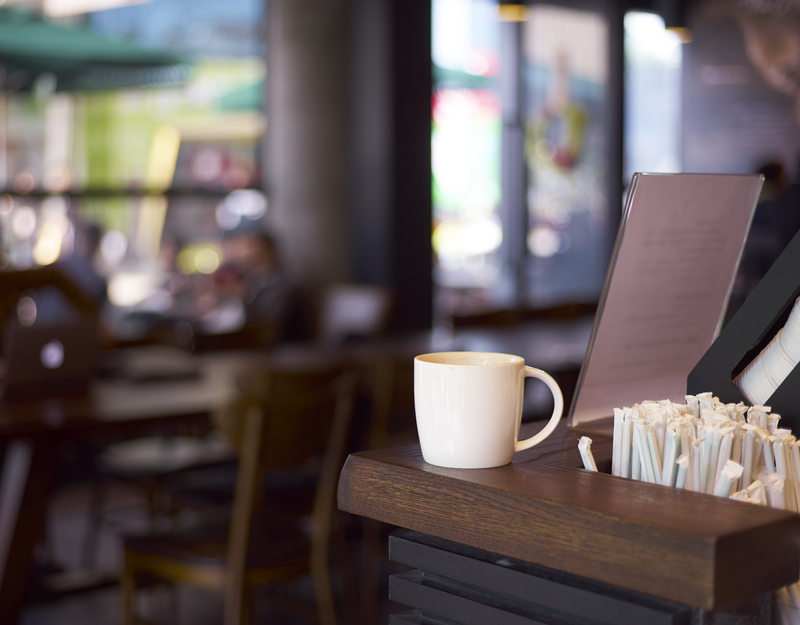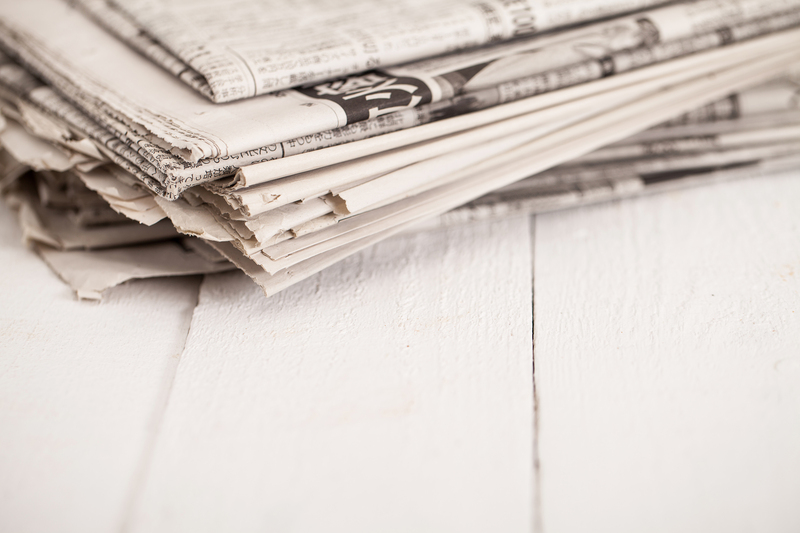Embracing Minimalism: How Decluttering Enhances Life
Minimalism is more than a fleeting trend; it's a lifestyle choice that promises clarity, purpose, and a renewed sense of freedom. In today's hyper-consumerist world, the art of decluttering goes far beyond simply tidying up your home--it offers transformative benefits that can touch every area of your life. Whether you're overwhelmed by clutter or yearning for a more intentional way of living, embracing minimalism can lead to enhanced well-being and a deeper connection to what truly matters.
Understanding Minimalism: The Philosophy Behind the Lifestyle
At its core, minimalism is about simplifying your environment and your mindset. Minimalist living doesn't mean depriving yourself or living with as little as possible. Instead, it focuses on intentionally choosing what you allow into your life--be it objects, commitments, or even thoughts. By embracing minimalism, you pave the way for decluttering, which can powerfully enhance your quality of life.
The Roots of Minimalist Philosophy
Minimalism is rooted in several global philosophies. From Japanese Zen traditions, which value simplicity and mindfulness, to Scandinavian designs emphasizing clean lines and functionality, the minimalist philosophy crosses cultures. The main goal is to strip away excess, making space for what truly adds value.
- Intentionality: Make decisions with purpose, focusing on what's truly important.
- Freedom from Excess: Let go of material possessions and mental clutter that no longer serve you.
- Quality over Quantity: Cherish meaningful possessions and experiences rather than accumulating more stuff.

Why Decluttering Matters: The Benefits of Minimal Living
Decluttering is often the first actionable step toward a minimalist lifestyle. However, its impact extends well beyond organizing your belongings. Here's how decluttering enhances your life:
1. Improved Mental Health and Reduced Stress
Cluttered spaces lead to cluttered minds. Studies show that excessive mess creates feelings of anxiety and overwhelm. By embracing minimalism and reducing clutter, you foster a peaceful environment that serves as a sanctuary from the outside world. The act of sorting and discarding itself can be extremely therapeutic.
- Reduced anxiety and stress levels
- Increased sense of accomplishment and control
- Improved focus and productivity
2. Enhanced Productivity and Focus
When your environment is free of distractions, it's much easier to concentrate. Decluttering your workspace can dramatically increase productivity, enabling you to finish tasks faster and with greater accuracy.
Minimalism and productivity go hand-in-hand. By having fewer items within view, your brain is not constantly processing unnecessary information, leaving more mental energy for creative thought and effective work.
3. Better Physical Health
Excess clutter can be a physical hazard, leading to dust buildup or even the risk of tripping. On the other hand, a clean, organized environment is easier to maintain and promotes healthier habits. When your kitchen counters are clear, you're more likely to prepare healthy meals. When bedroom clutter is minimized, your sleep can improve significantly.
4. Mindful Consumption and Financial Freedom
Living minimally means being more aware of your buying habits. When you declutter and focus on what you truly need, you naturally reduce unnecessary spending. Minimalism encourages you to resist impulse buying, ultimately saving money and allowing you to invest in meaningful experiences rather than things.
- Lower shopping frequency and expenses
- Increased financial stability
- Greater appreciation for quality goods
5. Environmental Impact
Minimalism aligns with eco-friendly values. By owning less and purchasing thoughtfully, you reduce your carbon footprint. Discarding responsibly and embracing second-hand or upcycled items also benefit the planet.
Step-by-Step Guide: How to Begin Your Minimalist Journey
Ready to embrace minimalism for a clutter-free life? Here's a comprehensive roadmap to get you started:
1. Start Small and Be Intentional
Tackling your entire home at once can be overwhelming. Begin with a small area--perhaps a single drawer, desk, or shelf. As you gain confidence, move to larger spaces. The key is intentionality: each item should have a clear purpose or bring you joy.
2. Sort and Categorize
Organize your belongings into categories, such as clothes, books, papers, and miscellaneous. This method, popularized by organization expert Marie Kondo, allows you to see exactly how much you own in each category.
- Keep - Items you use regularly or deeply value.
- Donate or Sell - Things you no longer need that are still in good condition.
- Recycle or Discard - Items that are no longer usable.
3. Design with Purpose
Embrace a clean, functional look by choosing furniture and decor that serve multiple purposes or bring genuine joy. Consider how each item fits into your daily life, and opt for quality over quantity.
4. Develop Mindful Habits
Minimalism isn't a one-time purge; it's a lifestyle. Continue to assess your belongings and habits regularly. Before buying something new, ask yourself if it aligns with your values or needs.
Minimalism at Home: Transforming Your Living Space
Our homes are often reflections of our minds. By embracing minimalism in your home, you create a haven that supports your best self.
The Living Room
Keep surfaces clear, opt for furniture that doubles as storage, and display only items that hold personal significance. Let natural light and open spaces become your decor.
The Kitchen
- Keep countertops clear for meal preparation and easier cleaning.
- Use multi-purpose tools to eliminate redundant gadgets.
- Organize pantry by usage to make healthy choices simple.
The Bedroom
Create a sleep sanctuary by limiting decor and electronics. Use soothing colors and comfortable textures for optimal rest. Store off-season clothing out of sight to reduce visual clutter.
Beyond Things: Mental and Digital Decluttering
Minimalism isn't limited to physical possessions. Our minds and digital devices are often just as cluttered.
Mental Decluttering
- Practice mindfulness techniques like meditation or journaling.
- Limit multitasking and focus on one activity at a time.
- Pare down your schedule--prioritize commitments that align with your core values.
Digital Decluttering
Unsubscribe from unnecessary emails, delete unused apps, and organize files (photos, documents) into manageable folders. Set limits on social media use and notifications for a more focused, intentional digital experience.
Lifestyle Enhancements: What Happens When You Embrace Minimalism?
Once you start integrating minimalism and decluttering into your life, you'll notice profound changes beyond just having a tidy home.
Stronger Relationships
With fewer distractions and commitments, you'll have more quality time to spend with loved ones. Minimalism also fosters deeper connections as you become more intentional with your time and energy.
Personal Growth and Self-Discovery
Letting go of what you don't need can help you rediscover who you truly are and what you value most. You'll become more aware of your habits, needs, and desires. This clarity leads to personal growth and self-confidence.
Increased Contentment and Happiness
Instead of seeking fulfillment through acquiring more, you'll find joy in the present moment and in what you already have. Minimalism teaches you to value experiences and relationships over possessions.
Common Myths About Minimalism Debunked
There are several misconceptions about minimalism that may hold people back from embracing it. Let's set the record straight:
- Myth: Minimalists own almost nothing.
Reality: Minimalism is about intentionality, not deprivation. Minimalists own what they need and value. - Myth: Minimalism is expensive.
Reality: While some minimalist design elements can be costly, the philosophy actually recommends buying less, saving money in the long run. - Myth: Minimalists miss out on life's joys.
Reality: Minimalism is about making room for more meaningful experiences, not fewer pleasures.

Tips for Sustaining a Minimalist Lifestyle
- Regularly reassess your possessions and routines.
- Practice gratitude for what you have.
- Adopt a one-in, one-out rule for new items.
- Share your journey--minimalism is easier and more inspiring when you connect with others on the path.
Conclusion: Start Your Minimalist Journey Today
Embracing minimalism and decluttering your life offers far-reaching benefits, from improved mental clarity to richer relationships and a greater sense of peace. By approaching your possessions, commitments, and digital life with intentionality, you can discover what truly matters and create a life of purpose and joy.
So, why wait? Begin your minimalist transformation today and experience for yourself how decluttering enhances life.